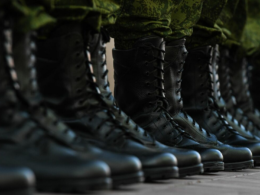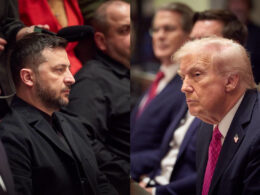The Trump administration is demanding that a foundational UN resolution on Ukraine be stripped of language affirming the country's territorial integrity and condemning Russian occupation, Kyiv Post reports, citing two people familiar with internal UN discussions.
The annual resolution has served since 2014 as the international community's most consistent diplomatic rebuke of Russia's occupation of Crimea and other Ukrainian territories. Last December, 78 countries – including the United States – voted to affirm Ukraine's sovereignty and document human rights abuses in Russian-held areas.
Now Washington wants those references gone. According to Kyiv Post's sources, US officials are pressing for the resolution to be recast under the vague label "war in Ukraine," with specific mentions of "territorial integrity," "aggression," and Crimea's annexation removed entirely.
The vote is scheduled for the coming weeks at the UN General Assembly's Third Committee.
What the White House wants erased
The resolution's formal title already telegraphs what's at stake: situation of human rights in the temporarily occupied territories of Ukraine, including the Autonomous Republic of Crimea and the city of Sevastopol.
The word "temporarily" matters.
It signals that the international community recognizes these territories as Ukrainian, just under hostile occupation.
Kyiv Post's sources say US officials want to strip:
- All references to Ukraine's "territorial integrity" and sovereignty
- Language condemning Russia's "aggression"
- Specific mentions of Crimea's 2014 annexation
- Documentation of systematic human rights violations in occupied areas
"This is another example of Washington walking away from Ukraine's core interests at a critical diplomatic juncture," a European envoy told Kyiv Post. "If the language goes, the message to Moscow is that the US is no longer leading the defense of the international order."
That's diplomatic speak for: Putin wins.
Timing reveals the pattern
The push comes as a new UN report details exactly the abuses Washington now wants to stop formally condemning. The report documents forced deportations, torture, suppression of Ukrainian identity, mandatory Russian citizenship requirements, and persecution of Ukrainian speakers in occupied territories.
Russia has spent over a decade trying to erase the international consensus that Crimea and other occupied areas belong to Ukraine. Every year since 2014, this resolution has stood as the UN's answer: No, we still recognize Ukraine's borders. Yes, Russia is an occupying power.
Remove "territorial integrity" from the text, and you've handed Moscow its biggest diplomatic victory since the invasion began. You've signaled that Western resolve is cracking, that Russia just needs to wait out the clock, that changing borders by force might actually work if you're patient enough.
European diplomats speaking to Kyiv Post made this explicit: once removing 'territorial integrity' from UN documents starts, there will be changing the entire framework of international law.
Another crack in the Western front
The resolution has historically passed with strong support – 78 countries voted yes last year, with only 15 voting no (Russia, Belarus, North Korea, Syria, and the usual Moscow-aligned bloc) and 82 abstentions.
But that was before the Trump administration began systematically pressuring Ukraine to accept territorial concessions while questioning continued military aid. The weakened resolution would fit neatly into a pattern: Washington undercutting Ukraine's position, then presenting the resulting erosion of support as evidence that Kyiv should "be realistic" about what it can achieve.
Ukraine's diplomatic team is now working to preserve the resolution's core language without US backing.
Either outcome would mark a turning point: the moment the international community stopped unanimously affirming that Ukraine's borders matter, that occupation is illegal, that changing borders by force violates the rules that prevent global chaos.
Moscow has been waiting for this moment since February 2022. According to Kyiv Post's reporting, the Trump administration is about to give it to them.





